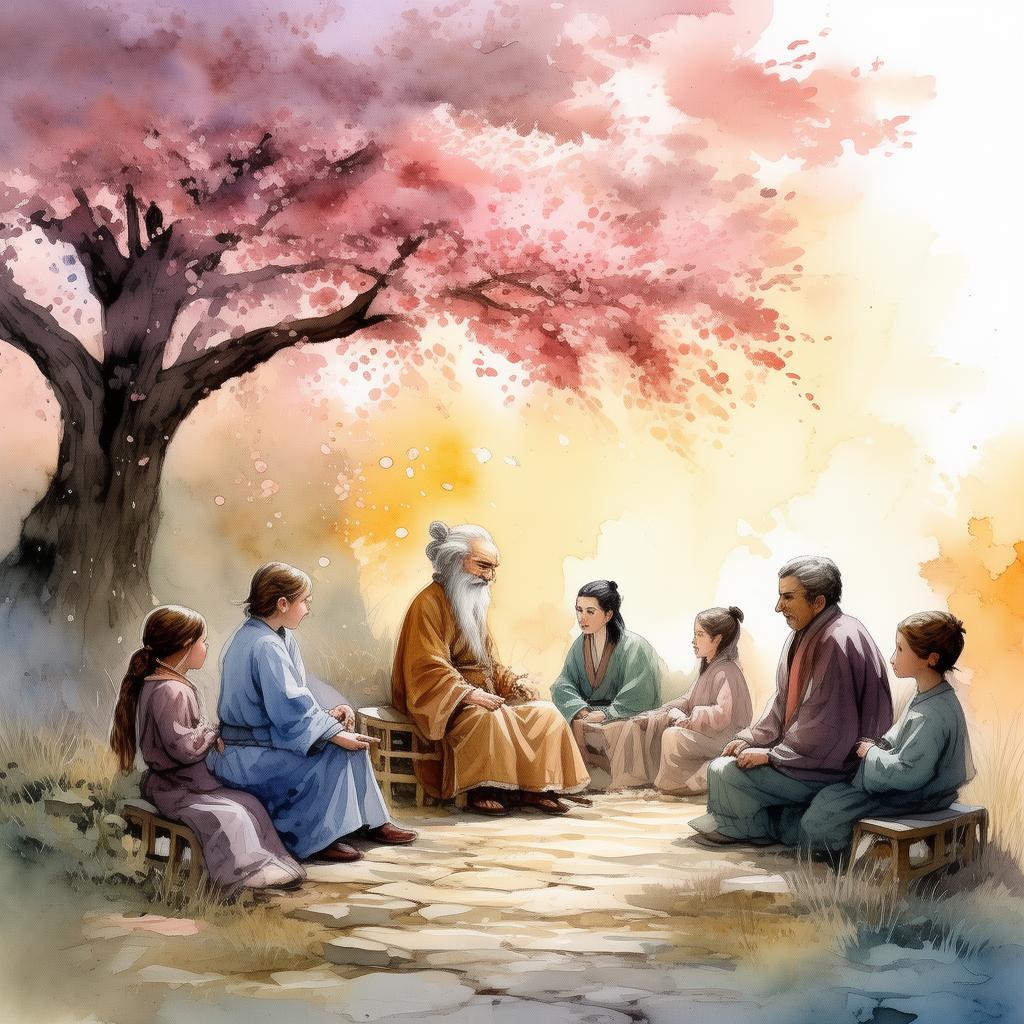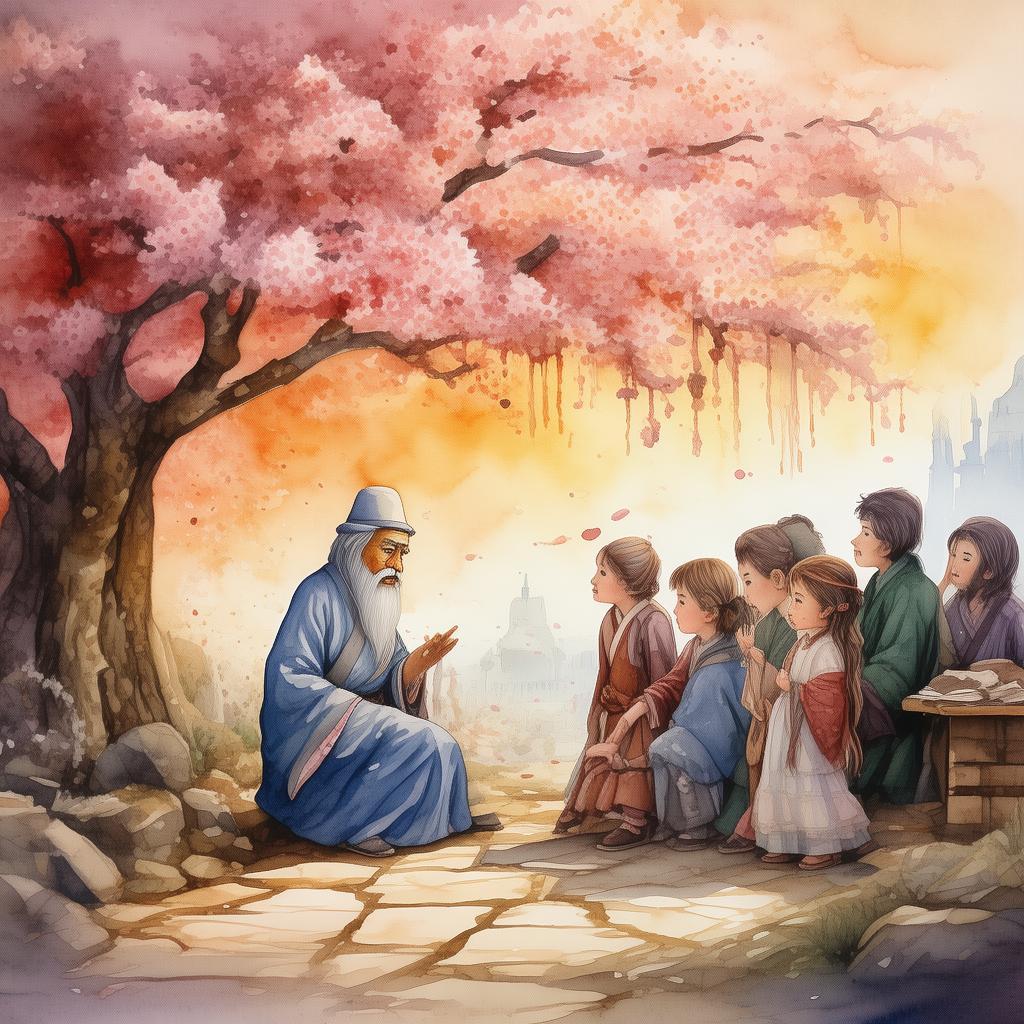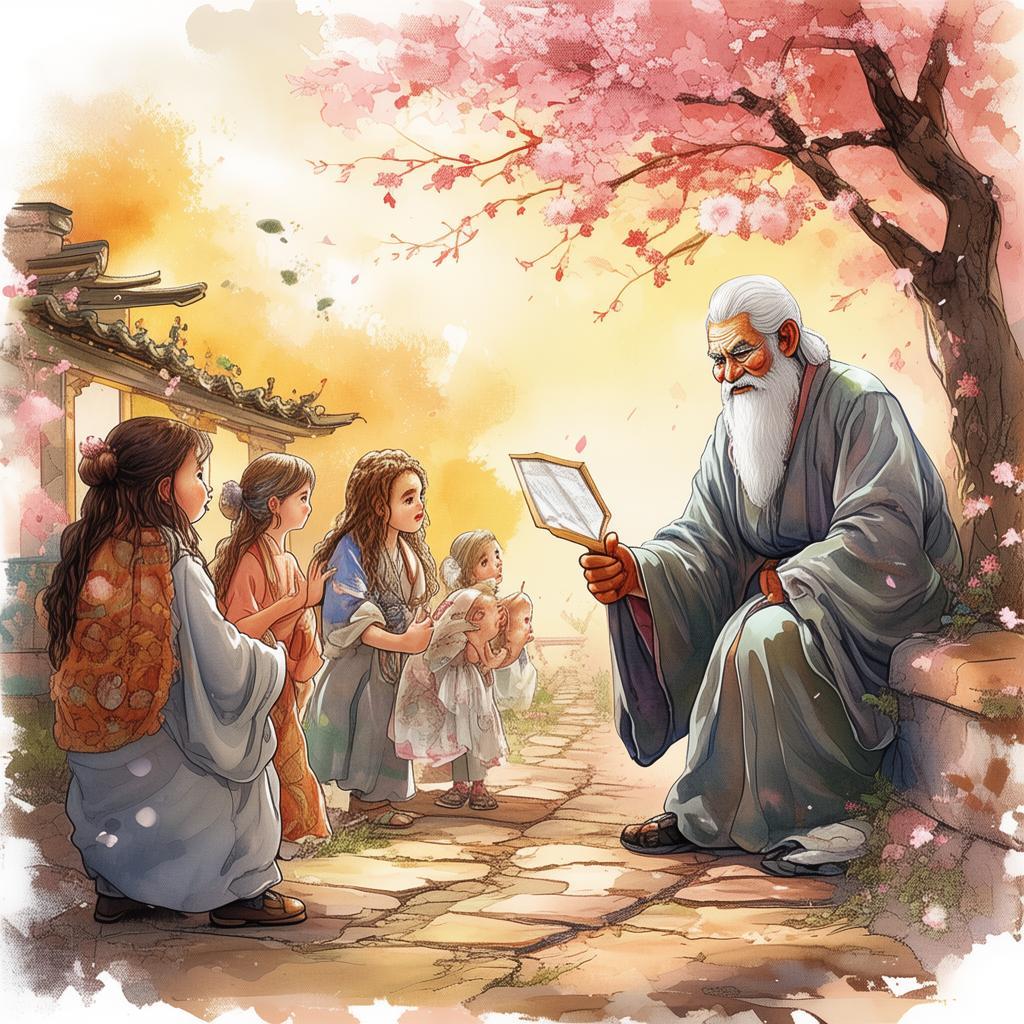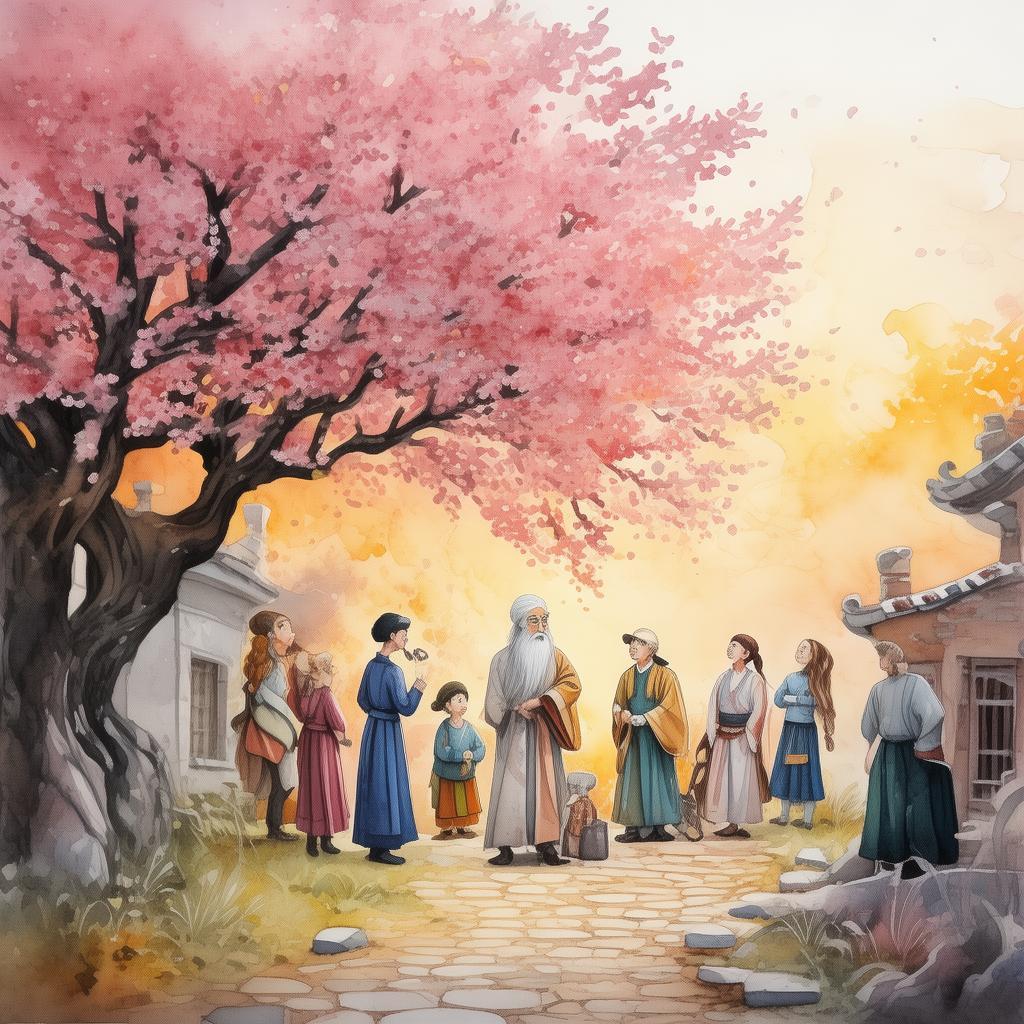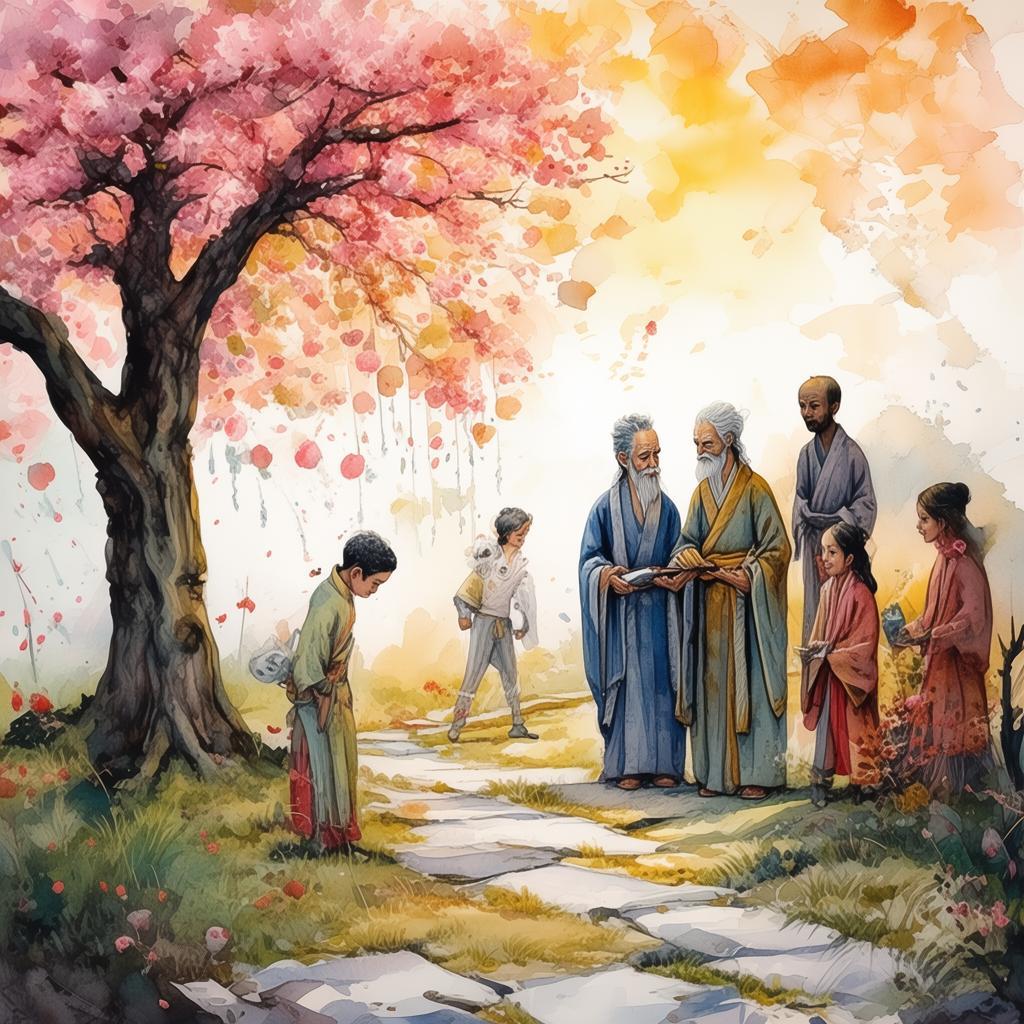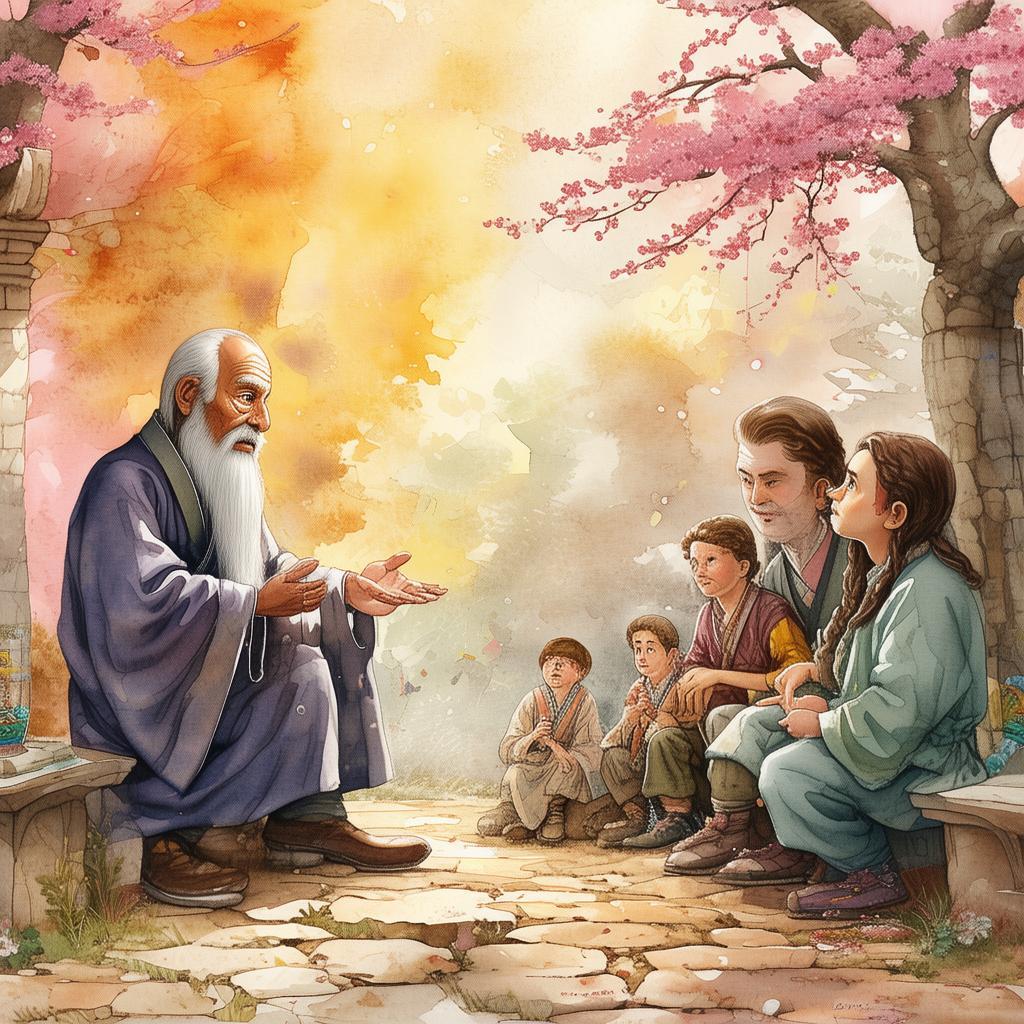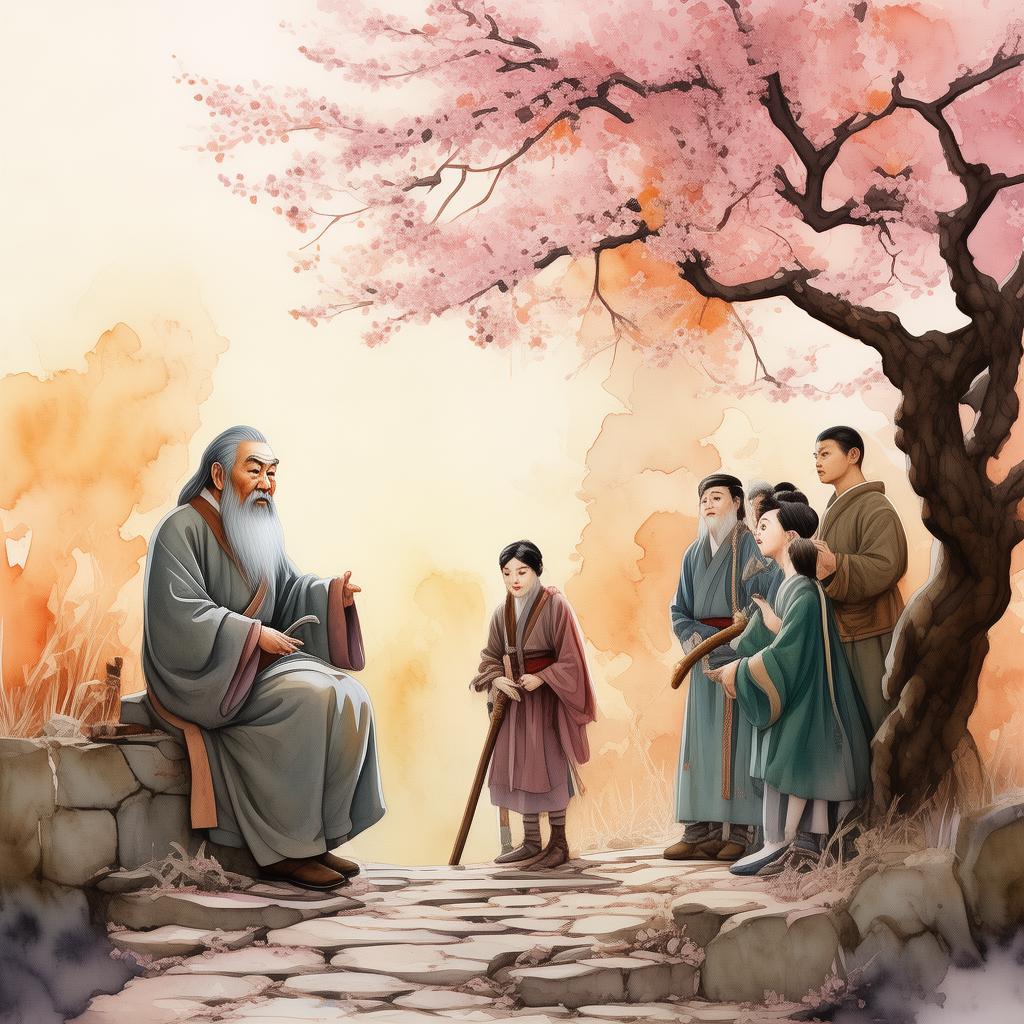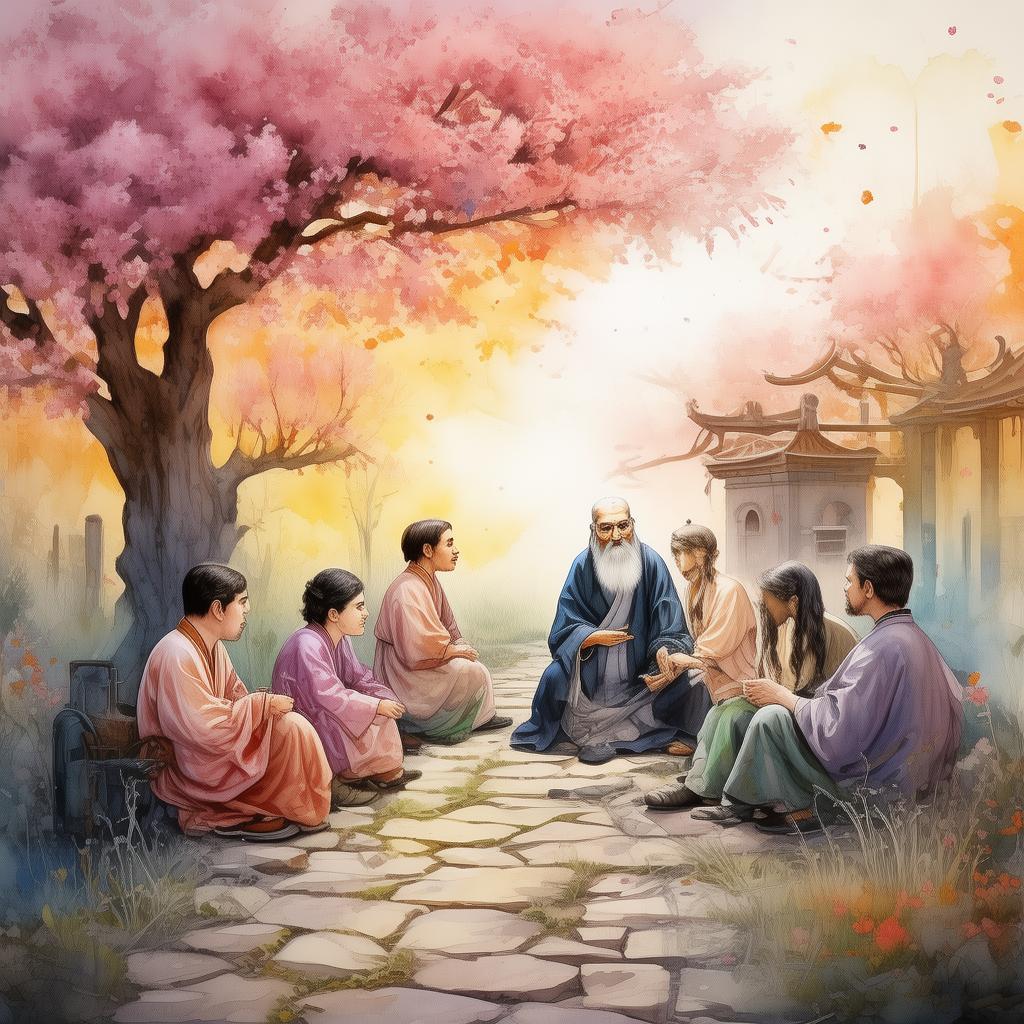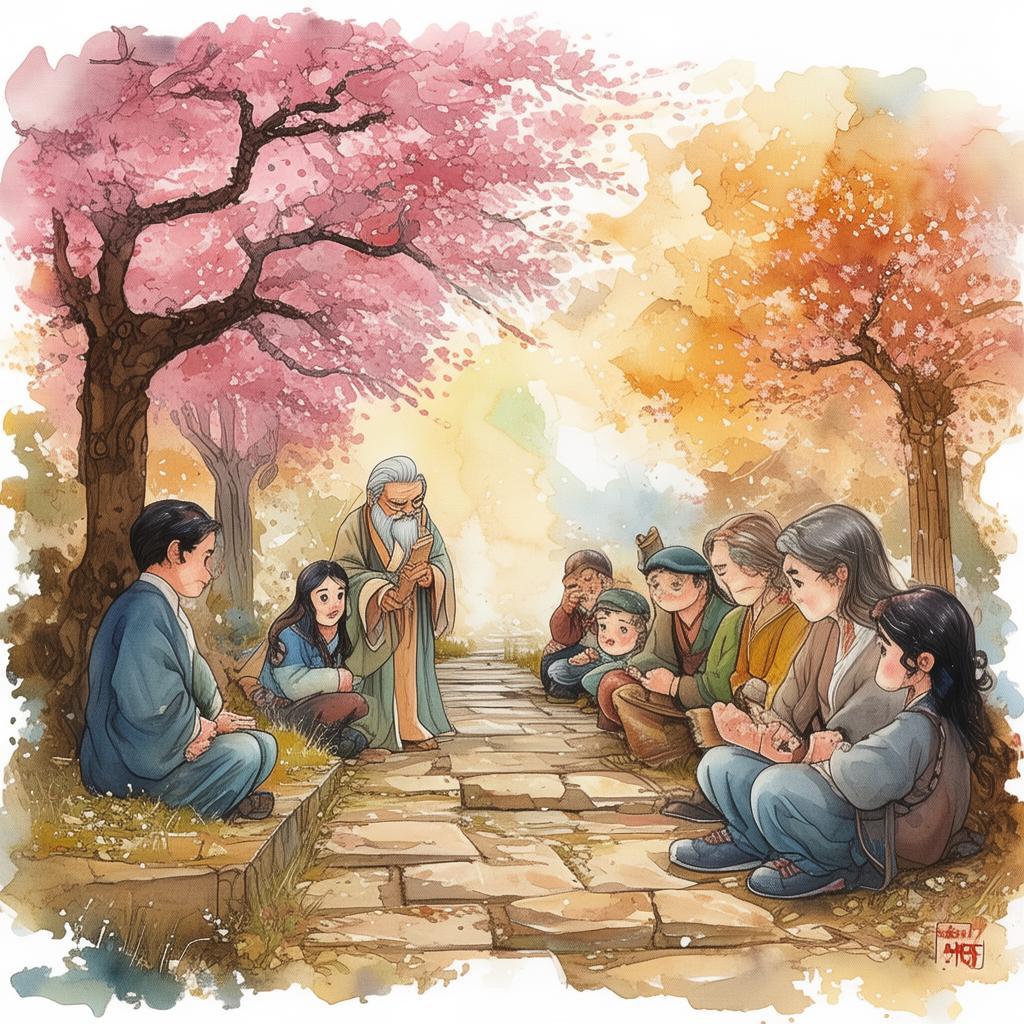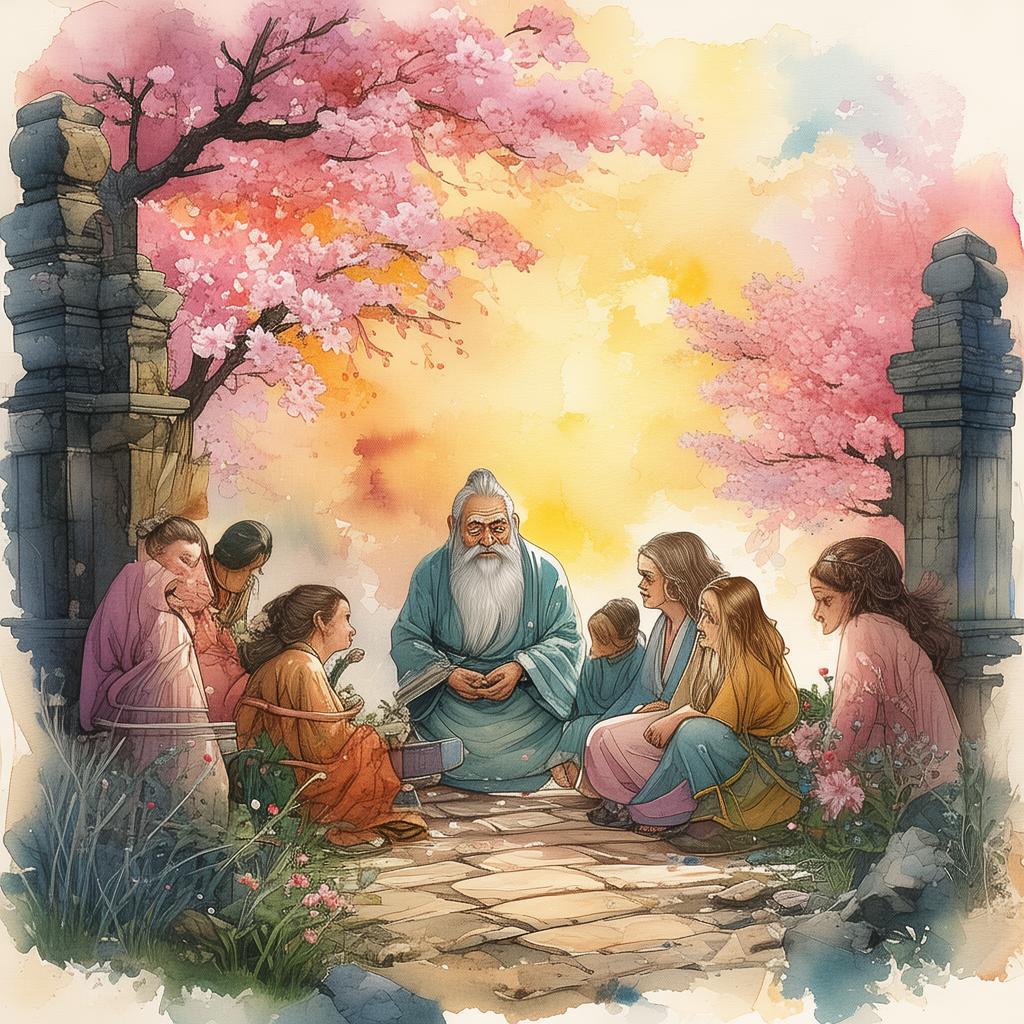Resonance of Redemption: The Jin Prince's Melody of Retribution
In the era of the Jin Dynasty, a time when the winds of change swept across the land, there was a prince whose name echoed through the halls of power and whose spirit was as untamed as the mountains he claimed as his birthright. This prince, known as Jin Feng, was not just a son of the dynasty; he was a melody, a symphony of ambition, loyalty, and a heart heavy with the weight of a nation's fate.
The tale begins with a betrayal so cunning that it left the Jin Prince shrouded in the silence of his own palace. His closest ally, Marquis Yan, once a comrade-in-arms, turned his blade against him. Marquis Yan, driven by a thirst for power and a false prophecy that he would rise to the throne, struck down the Jin Prince with a sword that was once a symbol of their brotherhood.
As Jin Feng lay bleeding in the arms of his loyal steward, Li Wei, he was struck by the silence of his own pain. The betrayal, the silence of the guards, and the absence of his family left him in a world of darkness, a world that he thought he would never escape. But as the blood began to dry, a melody began to form, a melody that was as haunting as it was beautiful.
The melody, a haunting tune that seemed to rise from the depths of his soul, was the sound of his own spirit, calling to him from the shadows. It was a melody that spoke of the wrongs done to him, a melody that whispered of justice. But it was also a melody that spoke of something else, something deeper—a melody that spoke of redemption.
Li Wei, who had witnessed the fall of the prince and the rise of Marquis Yan, realized that the melody held the key to their survival. With a heart heavy with guilt and a mind set on revenge, he decided to help Jin Feng rise again, not as a prince, but as a melody of redemption.
Li Wei took it upon himself to guide the prince through the shadows of the palace, teaching him the art of the lute, the music that would one day become the Jin Prince's true weapon. Together, they navigated the treacherous waters of court politics, each step a step towards the day when Jin Feng would reclaim his throne.
As the days turned into months, the melody grew stronger, and so did the Jin Prince. With each strum of the lute, he found his voice, a voice that would echo through the halls of the palace and across the land. The melody of redemption became his shield, his armor, and his strength.
The climax of the story comes when Marquis Yan, now king, hosts a grand ball to celebrate his rise to power. The entire court is in attendance, including the Jin Prince, who is now known as the Lute Player, a man whose name has become synonymous with mystery and intrigue.
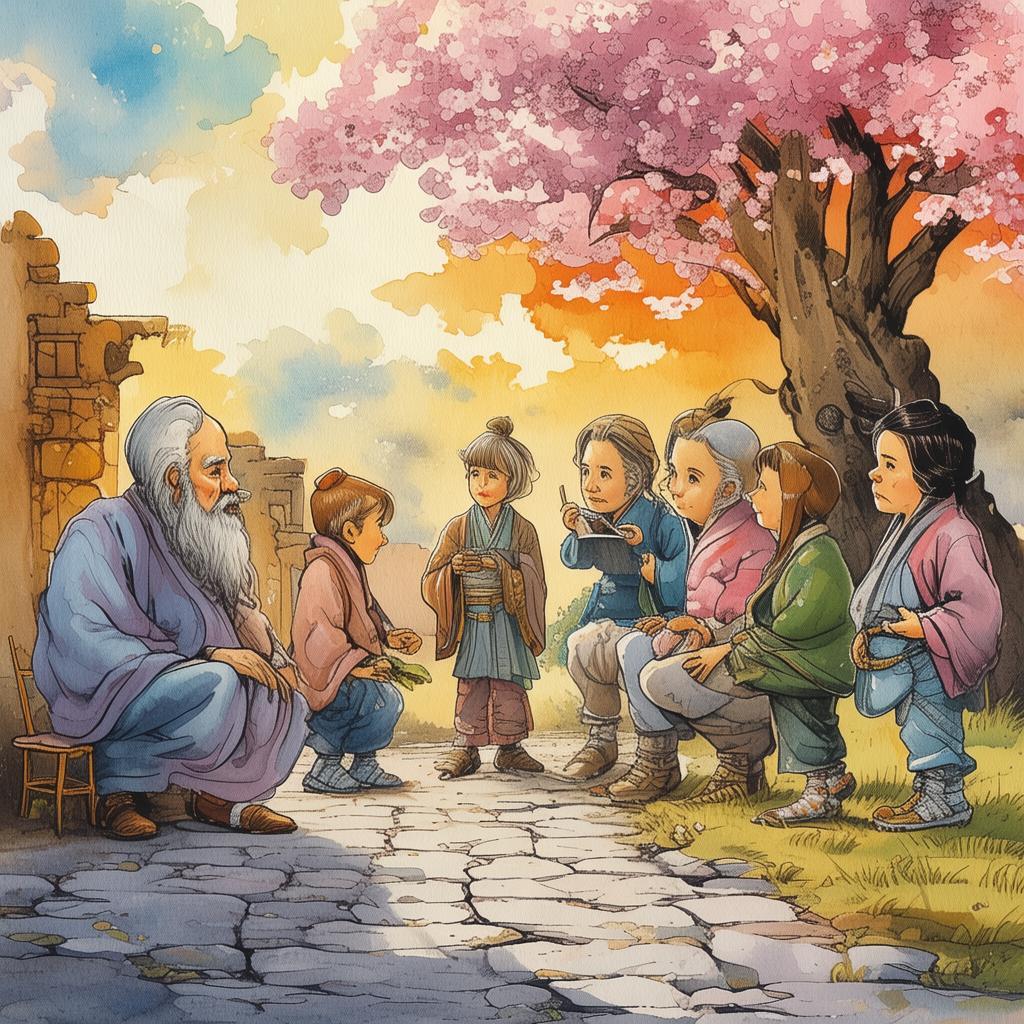
As the night unfolds, the Lute Player steps forward, and the melody he plays is so haunting that it stops the entire court in its tracks. The music swells, reaching heights of emotion and intensity, and as it reaches its peak, the Lute Player stops, his eyes closed, as if lost in his own world.
Suddenly, the music changes, a new melody emerging from the shadows, a melody of forgiveness and redemption. The court, caught off guard, watches in awe as the Lute Player opens his eyes, his gaze piercing through the crowd to meet the eyes of Marquis Yan.
In that moment, the melody becomes a call to action, a call to Marquis Yan to face the truth of his actions and the consequences that await him. The crowd, moved by the music and the message, begins to murmur, their whispers growing into a chorus that demands justice.
Marquis Yan, unable to escape the truth or the music, steps forward, his face contorted with fear and remorse. He acknowledges his betrayal, his crimes, and the suffering he has caused. In a stunning twist, he offers to abdicate his throne, not for power, but for redemption.
The Jin Prince, who had once been the target of Marquis Yan's wrath, now accepts his offer, not as a sign of weakness, but as a testament to his own strength of character. The throne is passed, not to a prince, but to a melody, a melody that speaks of the power of forgiveness and the strength of the human spirit.
The story ends with the Jin Prince, now the Lute Player, playing a final note, a note that resonates with the hope and promise of a new era. The melody of redemption has become the melody of a nation, a melody that will echo for generations to come.
As the final note fades into silence, the Lute Player opens his eyes, a look of peace and satisfaction on his face. The court, moved by the music and the events of the night, rises to its feet, offering their silent support to the man who has become the embodiment of redemption and the melody that will forever be remembered as the Jin Prince's Melody of Retribution.
✨ Original Statement ✨
All articles published on this website (including but not limited to text, images, videos, and other content) are original or authorized for reposting and are protected by relevant laws. Without the explicit written permission of this website, no individual or organization may copy, modify, repost, or use the content for commercial purposes.
If you need to quote or cooperate, please contact this site for authorization. We reserve the right to pursue legal responsibility for any unauthorized use.
Hereby declared.
